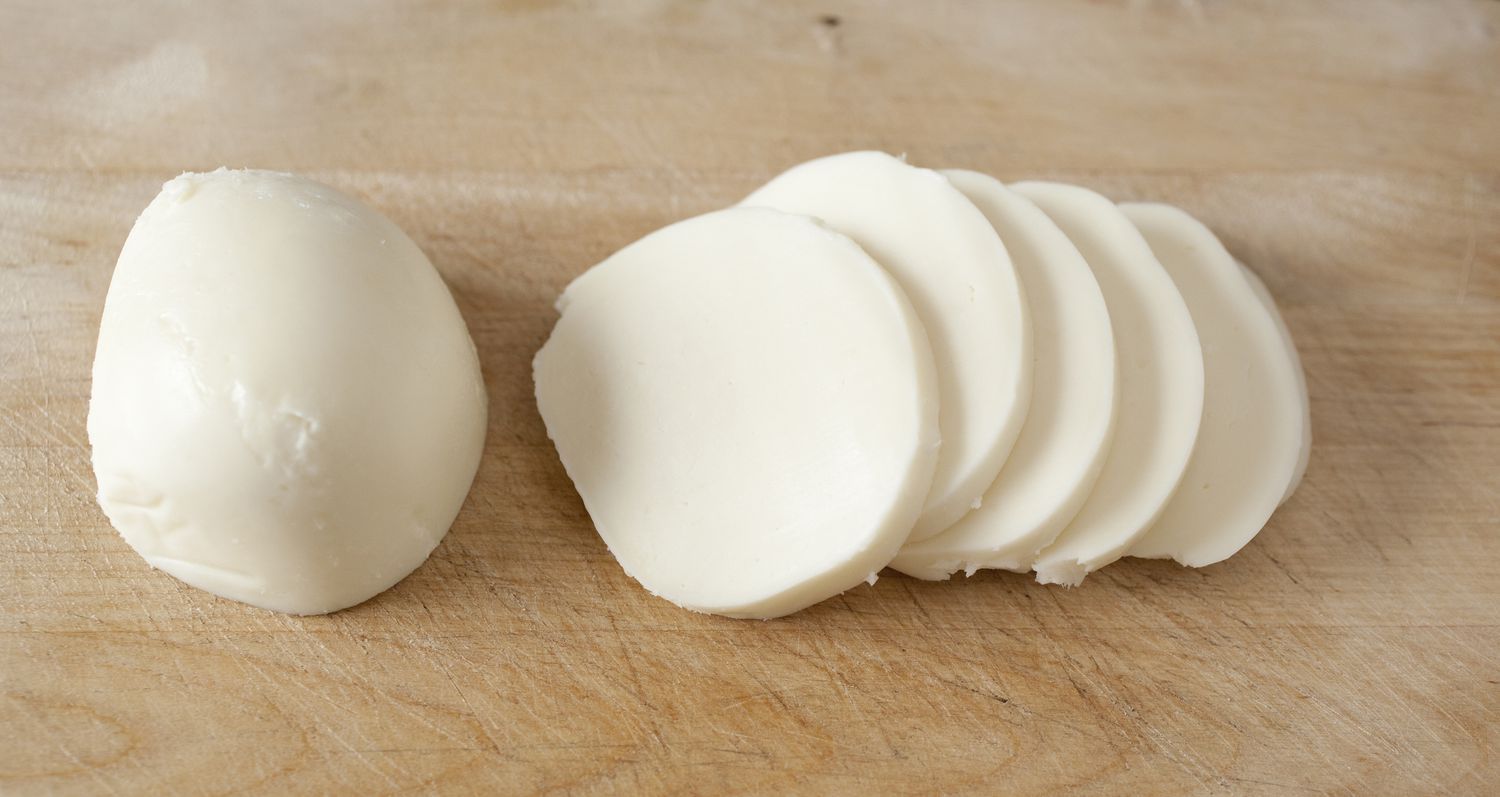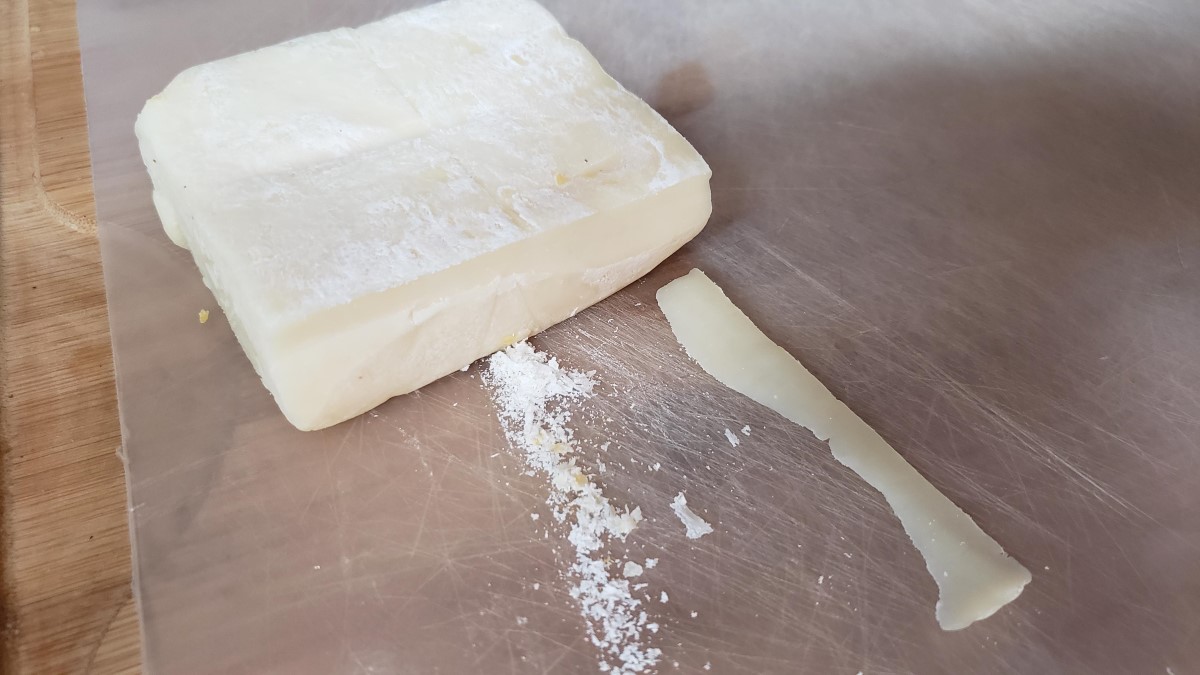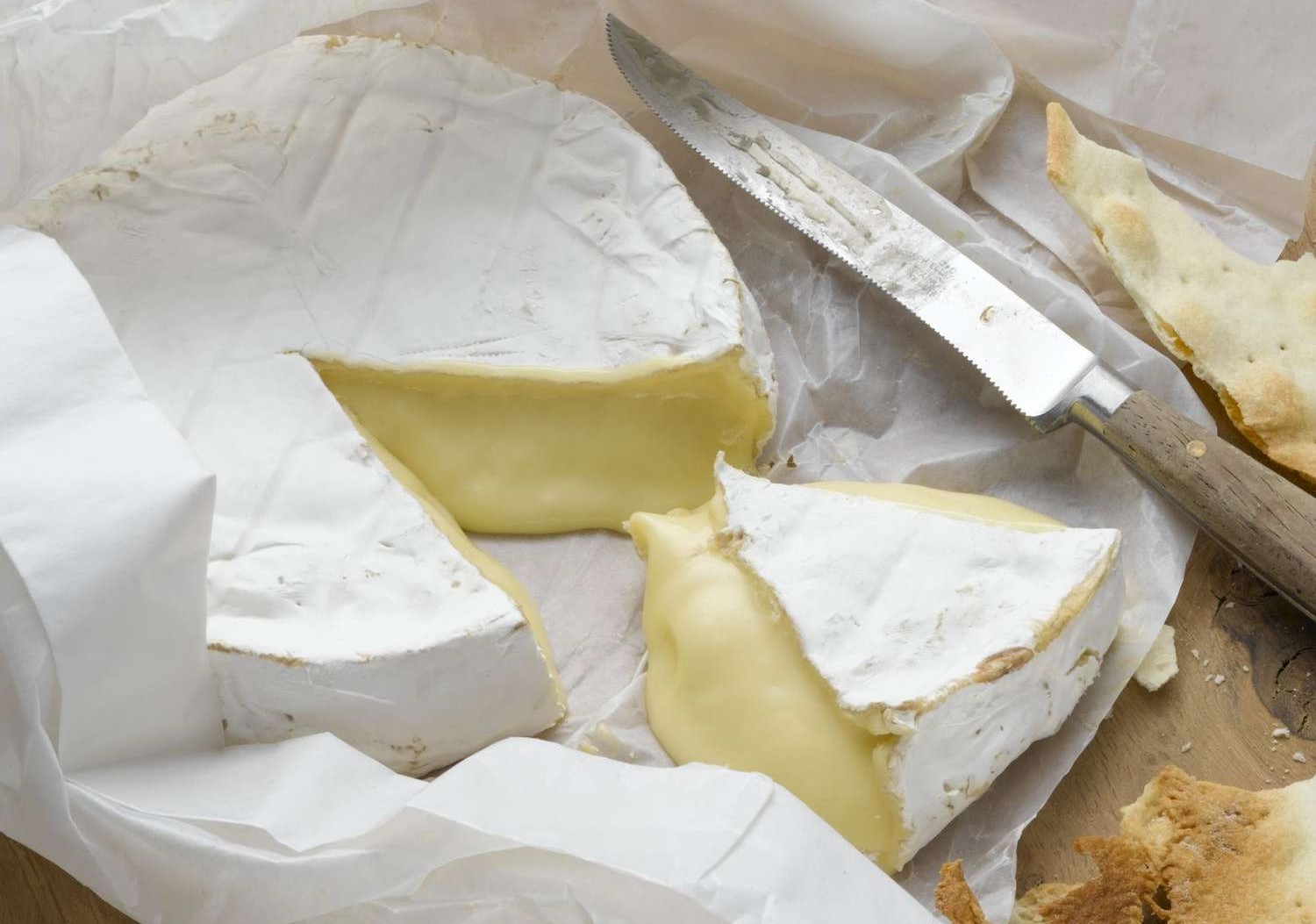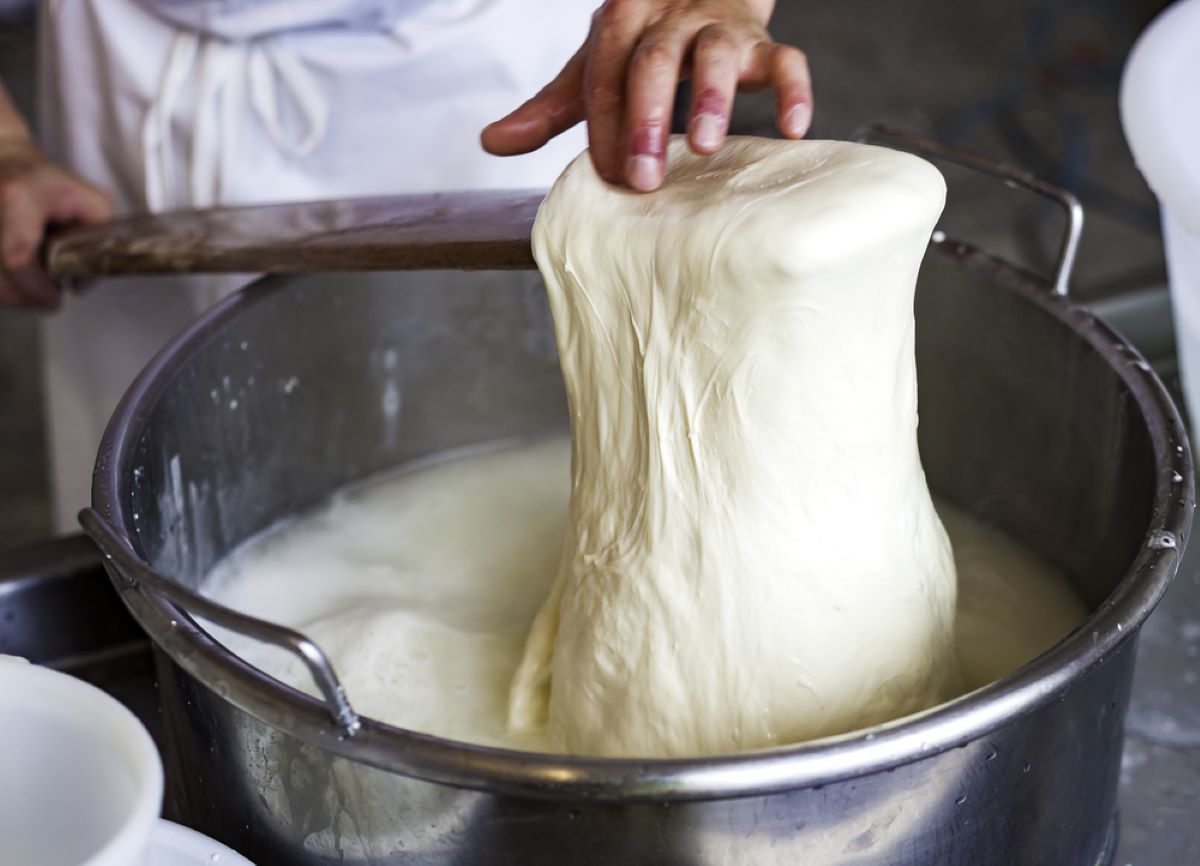

Articles
How To Store Mozzarella Cheese Once Opened
Modified: May 6, 2024
Need tips on how to store mozzarella cheese articles? Discover the best ways to keep your mozzarella fresh and delicious once opened.
(Many of the links in this article redirect to a specific reviewed product. Your purchase of these products through affiliate links helps to generate commission for Storables.com, at no extra cost. Learn more)
Introduction
Welcome to the world of delicious mozzarella cheese! Whether you’ve just indulged in a delectable caprese salad or melted this creamy cheese over a mouthwatering pizza, one question lingers: what do you do with the leftover mozzarella once it’s been opened?
Proper storage is essential for maintaining the quality and freshness of mozzarella cheese. By following a few guidelines and techniques, you can ensure that your mozzarella remains delicious and enjoyable for an extended period.
In this article, we will explore the best practices for storing mozzarella cheese once it has been opened. From the refrigerator to the freezer, we will delve into different storage methods to help you make the most of this versatile cheese.
So, let’s get started and discover how to store mozzarella cheese to preserve its amazing flavors and textures!
Key Takeaways:
- Properly storing mozzarella cheese is crucial for maintaining its freshness, flavor, and texture. Follow general guidelines, refrigeration, or freezing to extend its shelf life and enjoy it in various recipes.
- Be vigilant for signs of spoilage in mozzarella cheese, such as mold growth, unpleasant odor, texture changes, off-flavor, discoloration, or excessive liquid. Proper storage and prompt identification ensure safe and enjoyable consumption.
Read more: How To Store Goat Cheese Once Opened
Why Proper Storage is Important
Proper storage is crucial when it comes to preserving the taste and texture of mozzarella cheese. This soft and delicate cheese is highly prone to spoilage and can easily lose its freshness if not stored correctly.
Here are a few reasons why proper storage is important for mozzarella cheese:
- Maintaining Freshness: Mozzarella cheese is best enjoyed when it is fresh and retains its mild, milky flavor. Improper storage can lead to rapid deterioration, resulting in a sour taste and unpleasant texture.
- Preventing Spoilage: Mozzarella cheese is susceptible to mold growth and bacterial contamination. By storing it properly, you can minimize the risk of spoilage and ensure that the cheese remains safe to consume.
- Preserving Texture: The texture of mozzarella cheese is crucial to its enjoyment. Correct storage methods help retain the desired soft and stretchy consistency, ensuring that your mozzarella cheese is perfect for melting or slicing.
- Reducing Waste: With proper storage, you can extend the shelf life of your mozzarella cheese. This allows you to minimize food waste and make the most of your cheese by using it in various recipes before it goes bad.
By understanding the importance of proper storage, you can ensure that your mozzarella cheese remains fresh, flavorful, and safe to eat.
General Guidelines for Storing Mozzarella Cheese
When it comes to storing mozzarella cheese, there are a few general guidelines that you should keep in mind:
- Keep it Cool: Mozzarella cheese is highly perishable and sensitive to temperature. It is important to store it in a cool environment to maintain its freshness. Avoid exposing the cheese to heat or direct sunlight, as this can cause it to spoil quickly.
- Avoid Air Exposure: Mozzarella cheese is susceptible to oxidation, which can lead to a change in flavor and texture. To prevent this, it is essential to keep the cheese tightly wrapped and protected from air exposure.
- Separate from Strong Odors: Mozzarella cheese easily absorbs strong odors from other foods. To avoid flavor contamination, store it separately from pungent ingredients such as onions, garlic, and strong-smelling cheeses.
- Handle with Clean Hands: Before handling mozzarella cheese for storage, make sure your hands are clean. Oils, dirt, and bacteria can easily transfer to the cheese and cause spoilage.
- Consider the Use-By Date: When purchasing mozzarella cheese, pay attention to the use-by date mentioned on the packaging. It is always best to consume the cheese before this date to ensure optimal freshness.
- Don’t Freeze Fresh Mozzarella: While freezing can extend the shelf life of many foods, it is not recommended for fresh mozzarella. Freezing can alter the texture and quality of this delicate cheese, resulting in a grainy and less appetizing experience.
By following these general guidelines, you can ensure that your mozzarella cheese stays fresh and delicious for as long as possible.
Storing Mozzarella Cheese in the Refrigerator
The refrigerator is the ideal place to store mozzarella cheese, as it provides a cool and controlled environment. Here are the steps to follow when storing mozzarella cheese in the refrigerator:
- Wrap the Cheese: Start by wrapping the mozzarella cheese tightly in plastic wrap or aluminum foil. This will help prevent air exposure and maintain its freshness.
- Place in a Container: If you prefer, you can place the wrapped mozzarella cheese in a container or airtight bag to provide additional protection against moisture and odors.
- Choose the Right Shelf: Store the mozzarella cheese on a fridge shelf rather than in the door rack. The door rack is subject to temperature fluctuations every time you open and close the fridge, which can affect the cheese’s quality.
- Avoid the Vegetable Drawer: While the vegetable drawer might seem like a suitable place for storing cheese, the moisture levels in that compartment are typically higher, which can lead to premature spoilage.
- Check and Rotate: Periodically check the mozzarella cheese for any signs of mold or spoilage. If you notice any, discard the affected portion promptly. Additionally, rotate the cheese to ensure even exposure to the cool temperature.
By following these steps, you can maintain the quality and freshness of your mozzarella cheese for an extended period in the refrigerator.
Storing Mozzarella Cheese in the Freezer
If you find yourself with more mozzarella cheese than you can consume before it spoils, the freezer can be a great option for extended storage. Here’s how to properly store mozzarella cheese in the freezer:
- Wrap the Cheese: Start by wrapping the mozzarella cheese tightly in plastic wrap or aluminum foil. This will protect it from freezer burn and maintain its quality.
- Double Protection: For added protection, place the wrapped mozzarella cheese in a freezer-safe bag or airtight container. This extra layer will help prevent air exposure and maintain the cheese’s flavor and texture.
- Label and Date: Before placing the mozzarella cheese in the freezer, label the package with the date of freezing. This will help you keep track of how long it has been stored and ensure you use it within the recommended time frame.
- Store Away from Strong Odors: If possible, store the mozzarella cheese in a separate section or away from other strong-smelling foods in the freezer. This will prevent the cheese from absorbing any unwanted odors.
- Thawing the Cheese: When you’re ready to use the frozen mozzarella cheese, thaw it slowly in the refrigerator. Avoid thawing it at room temperature or using the microwave, as this can affect the texture of the cheese.
It’s important to note that freezing mozzarella cheese can affect its texture and meltability. While the cheese may not be suitable for fresh consumption or serving as is, it can still be a great addition to melted dishes like pizzas, lasagnas, or casseroles.
By following these guidelines, you can safely store mozzarella cheese in the freezer and enjoy its deliciousness even after an extended period.
Read more: How To Store Feta Cheese Once Opened
Tips for Maintaining Freshness and Flavor
To ensure that your mozzarella cheese remains fresh, flavorful, and enjoyable, consider these helpful tips:
- Buy Fresh Mozzarella: Opt for fresh mozzarella cheese from a reputable source. The quality of the cheese at the time of purchase significantly impacts its shelf life and taste.
- Use Moisture-Absorbent Ingredients: When storing mozzarella cheese, consider placing a paper towel or cheesecloth around the cheese to absorb excess moisture. This helps prevent the cheese from becoming soggy and extends its shelf life.
- Don’t Cut into Small Pieces: To maintain its freshness, avoid cutting the mozzarella into small pieces until you’re ready to use it. Whole or larger slices of cheese tend to retain moisture and flavor for longer.
- Store in Brine Solution: If you have mozzarella cheese in brine solution, ensure that it is completely submerged in the liquid. This helps preserve its texture and flavor for a longer period. Remember to use a clean, airtight container for storage.
- Don’t Overstock: It’s best to buy mozzarella cheese in smaller quantities that you can consume within a reasonable time frame. Overstocking can lead to waste and a decline in quality.
- Avoid Repeated Freezing and Thawing: When it comes to frozen mozzarella cheese, try to thaw only the portion you need rather than refreezing the entire package. Repeated freezing and thawing can degrade the texture and taste of the cheese.
- Store Unopened Mozzarella in its Original Packaging: Unopened mozzarella cheese can be stored in its original packaging in the refrigerator. This helps maintain its freshness and prevents contamination.
- Don’t Keep Cheese at Room Temperature: Mozzarella cheese should always be stored in a cool environment. Avoid leaving it at room temperature for an extended period, as this accelerates spoilage.
By following these tips, you can ensure that your mozzarella cheese stays fresh, delicious, and ready to enjoy in your favorite dishes.
Store opened mozzarella cheese in a resealable plastic bag or airtight container, and place it in the refrigerator. For best results, use the cheese within 3-5 days of opening.
Properly Wrapping and Sealing Mozzarella Cheese
Properly wrapping and sealing mozzarella cheese is essential to maintain its freshness and prevent exposure to air, which can lead to spoilage. Follow these steps to ensure your mozzarella cheese stays in optimal condition:
- Use Plastic Wrap: Start by wrapping the mozzarella cheese tightly with plastic wrap. Make sure the entire surface of the cheese is covered, leaving no gaps or openings.
- Add an Extra Layer: For added protection, consider wrapping the plastic-wrapped cheese in aluminum foil. This added layer helps retain moisture and further prevents air exposure.
- Tightly Seal the Edges: When wrapping the mozzarella cheese, ensure that the edges are tightly sealed to prevent air from reaching the cheese. This helps maintain its texture and flavor.
- Consider Vacuum Sealing: If you have a vacuum sealer, using it to package the wrapped mozzarella cheese can provide an airtight seal and extend the cheese’s shelf life.
- Label and Date: Once the mozzarella cheese is properly wrapped and sealed, label the package with the current date. This will help you keep track of its storage time and ensure you use it within the recommended time frame.
- Store in an Airtight Container: If you prefer, you can place the wrapped mozzarella cheese in an airtight container or a zip-top bag for added protection against air exposure and odors. This step can be especially helpful when storing it in the refrigerator or freezer.
By taking the time to properly wrap and seal your mozzarella cheese, you can significantly prolong its shelf life and maintain its quality.
How to Store Mozzarella Cheese in Brine Solution
If you have mozzarella cheese in brine solution, there are specific steps you can follow to ensure its freshness and longevity. Here’s how to properly store mozzarella cheese in brine solution:
- Keep the Brine Solution: The brine solution is an important element in preserving the mozzarella cheese’s texture and flavor. It’s crucial to keep the cheese submerged in the brine at all times to prevent it from drying out.
- Choose the Right Container: Transfer the mozzarella cheese along with the brine solution to a clean, airtight container. The container should be large enough to fully submerge the cheese and provide adequate space for the liquid.
- Seal the Container: Ensure that the container is tightly sealed to prevent air exposure. This helps maintain the desired texture and prevents the absorption of unwanted flavors from the surroundings.
- Refrigerate the Cheese: Store the container of mozzarella cheese in the refrigerator. The cool temperature will slow down the aging process and keep the cheese fresh for a longer period.
- Check the Brine Level: Periodically check the brine level in the container. If the cheese becomes exposed due to evaporation or absorption of the liquid, add more brine solution to keep it submerged.
- Label and Date: It’s always a good idea to label the container with the current date to help you keep track of the storage time. This will ensure that you consume the mozzarella cheese within the recommended time frame.
Storing mozzarella cheese in brine solution helps maintain its moisture, texture, and flavor. By following these steps, you can enjoy the delightful freshness of brined mozzarella cheese for a longer period.
How Long Can Opened Mozzarella Cheese be Stored
The storage time for opened mozzarella cheese depends on various factors such as the type of mozzarella, how it is stored, and its condition. Generally, opened mozzarella cheese can be stored for about 3 to 5 days in the refrigerator.
It’s important to note that the quality and freshness of the mozzarella cheese may decline over time. The cheese may become dry, lose its smooth texture, and develop an off-flavor. Therefore, it is best to consume opened mozzarella cheese within this time frame to ensure optimal taste and texture.
If you need to store the opened mozzarella cheese for a longer period, you can consider freezing it. However, it’s important to remember that freezing can alter the texture of mozzarella cheese, particularly soft varieties like fresh mozzarella. Frozen mozzarella cheese can become slightly crumbly and may not have the same meltability when thawed.
When freezing mozzarella cheese, wrap it tightly in plastic wrap or aluminum foil, and place it in a freezer-safe bag or airtight container. Properly sealed, it can be kept in the freezer for up to 2 months. Thaw the frozen mozzarella cheese slowly in the refrigerator when you are ready to use it.
It’s worth noting that the storage times mentioned are general guidelines and may vary depending on the specific quality, condition, and storage conditions of the mozzarella cheese.
Remember to always use your best judgment and consider the sensory qualities of the cheese – such as odor, appearance, and texture – to determine if it is still safe to consume. If you notice any signs of spoilage, such as mold growth, an off smell, or an unusual texture, it is best to discard the cheese.
To maximize the shelf life of opened mozzarella cheese, ensure that it is stored properly in the refrigerator or freezer and consumed within the recommended time frames to enjoy its deliciousness at its best.
Read more: How To Store Mozzarella Ball
Signs of Spoilage in Mozzarella Cheese
It’s important to be able to identify the signs of spoilage in mozzarella cheese to ensure your safety and enjoyment. Here are some key indicators that your mozzarella cheese may have spoiled:
- Mold Growth: One of the most obvious signs of spoilage is the presence of mold on the surface of the mozzarella cheese. Discard the cheese if you see any green, black, or fuzzy spots.
- Unpleasant Odor: Mozzarella cheese should have a mild, milky aroma. If you notice a pungent or sour smell coming from the cheese, it is likely spoiled and should not be consumed.
- Texture Changes: Fresh mozzarella cheese should have a smooth, soft, and slightly elastic texture. If it becomes excessively dry, crumbly, or slimy, it may indicate that the cheese has spoiled.
- Off-Flavor: Spoiled mozzarella cheese may have a bitter, sour, or rancid taste. If the flavor deviates significantly from the usual taste of fresh mozzarella, it’s best to discard it.
- Discoloration: If the mozzarella cheese develops an unusual color, such as gray, yellow, or brown spots, it may be a sign of spoilage. Fresh mozzarella cheese should have an off-white or cream color.
- Excessive Liquid: While fresh mozzarella cheese may release some liquid, an excessive amount of liquid pooling or seeping out of the cheese may indicate spoilage. This can be a result of bacterial growth or excessive moisture.
It’s important to note that mozzarella cheese has a relatively short shelf life, especially once it has been opened. Therefore, it’s crucial to pay attention to these signs of spoilage and trust your senses when determining whether the cheese is still safe to eat.
When in doubt, it is always better to err on the side of caution and discard any mozzarella cheese that shows signs of spoilage. Consuming spoiled cheese can lead to foodborne illnesses and cause discomfort or health issues.
By being vigilant and promptly identifying signs of spoilage, you can ensure that you enjoy fresh and safe mozzarella cheese every time.
Conclusion
Mozzarella cheese is a versatile and delicious ingredient that adds a creamy and melty touch to various recipes. Properly storing mozzarella cheese once it has been opened is essential to maintain its freshness, flavor, and texture.
By following the general guidelines for storing mozzarella cheese, such as keeping it cool and avoiding air exposure, you can extend its shelf life and enjoy it for a longer period. Storing mozzarella cheese in the refrigerator, wrapped and sealed, helps preserve its quality. Freezing can also be an option for longer storage, although it may slightly affect the texture.
To maintain the freshness and flavor of mozzarella cheese, consider wrapping and sealing it properly with plastic wrap or aluminum foil, and storing it in an airtight container. If you have mozzarella cheese in brine solution, ensure it remains fully submerged for optimal preservation.
Opened mozzarella cheese can be stored for about 3 to 5 days in the refrigerator. Freezing can extend its shelf life up to 2 months, but be mindful of the potential texture changes. It’s important to check for signs of spoilage, such as mold growth, unpleasant odor, texture changes, off-flavor, discoloration, or excessive liquid.
By understanding these storage techniques and being aware of the signs of spoilage, you can ensure that your mozzarella cheese stays fresh and safe to consume.
Enjoy the versatility of mozzarella cheese, whether it’s in caprese salads, sandwiches, pizzas, or melted into comforting pasta dishes. With proper storage, your mozzarella cheese will always be a delightful addition to your culinary creations.
Once you've mastered storing mozzarella cheese, why stop there? Keep all your essentials fresh with our guide on the best airtight containers, perfect for coffee lovers looking to preserve their beans' robust flavors. Tackling more than just kitchen woes? Our practical advice on how to keep closets free of mold ensures your spaces stay clean and healthy. Dive into these reads for more smart, simple solutions to everyday problems!
Frequently Asked Questions about How To Store Mozzarella Cheese Once Opened
Was this page helpful?
At Storables.com, we guarantee accurate and reliable information. Our content, validated by Expert Board Contributors, is crafted following stringent Editorial Policies. We're committed to providing you with well-researched, expert-backed insights for all your informational needs.














0 thoughts on “How To Store Mozzarella Cheese Once Opened”